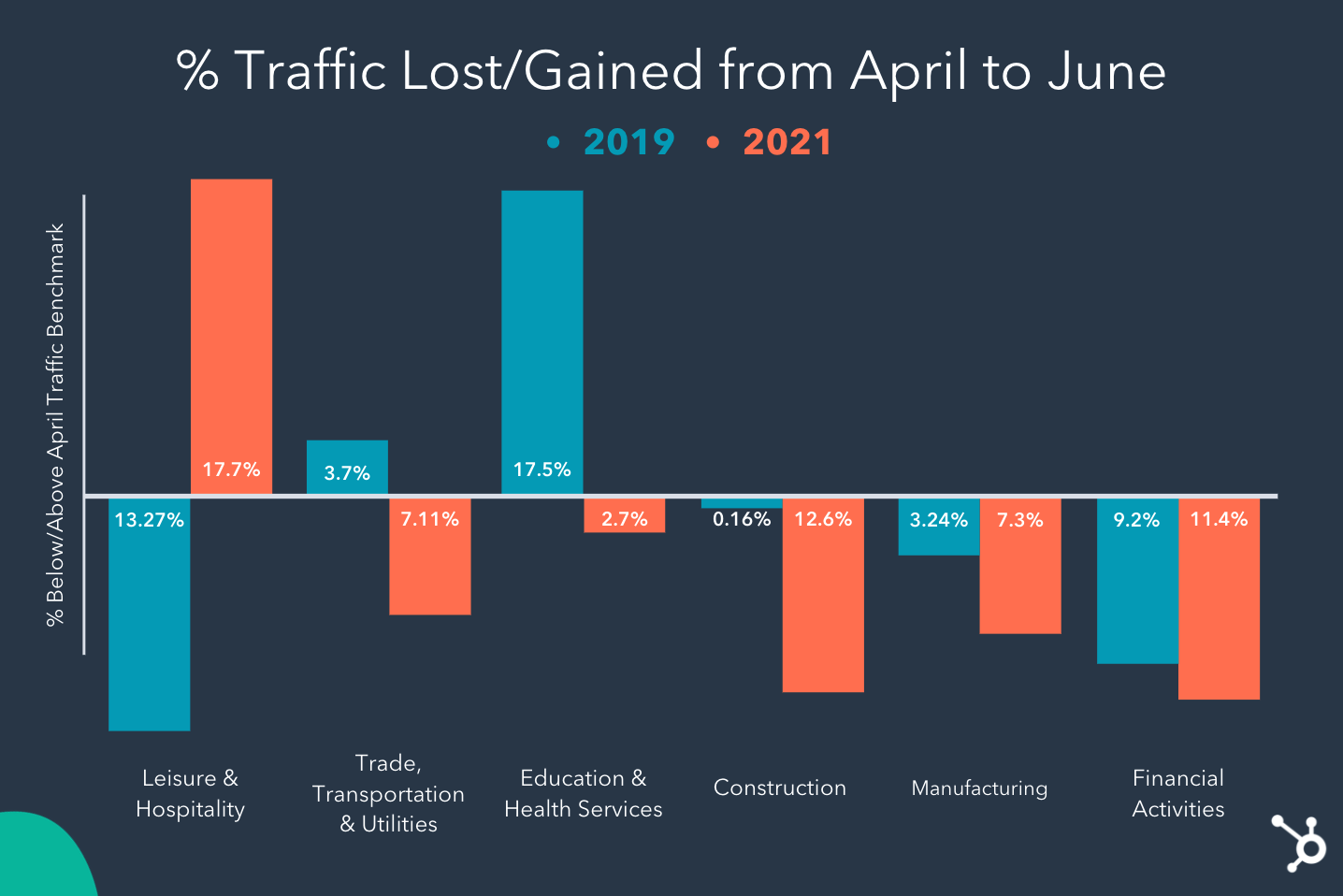Summertime Slump 😩
August 11, 2021
THIS JUST IN
The can't miss small biz event is back, baby!

Yep, we’re talking about Playbook 2021. Join us on September 30 to steal winning plays from today’s biggest names in small business.
The day’s line-up features the likes of VaynerMedia's Gary Vee and Cocokind founder and CEO Priscilla Tsai. Plus, a live Q&A with 15-time NBA all-star Shaquille O'Neal - just to name a few. And we’ll be adding even more speakers to the lineup in the coming weeks.
The best part? The event is 100% FREE. All you have to do is save your spot today.
SUMMERTIME SLUMPNESS
The summertime slump is real - here’s how to beat it
In the summertime, the livin' isn't easy for most businesses. Because for consumers, summer and vacation go hand-in-hand. Meaning, they spend more time and money on travel. And less on goods and services.

But this year, it's looking like even less of a hot biz summer for most industries. Because people are anxious to finally get the heck out of the house. And 60% of Americans plan to travel more in 2021 than in 2019.
HubSpot analyzed data from 103k+ businesses to find out the effects of this travel bug. And the early results confirm that the summertime slump is really real.
In June 2021, global traffic declined 5.35% from April. And that's compared to only a 3.67% decline in 2019 during the same period. Meaning, people are browsing even less than in the past.
And some industries are getting hit harder with their traffic than others:
- Financial services are down 11.4%
- Construction fell 12.6%
- Manufacturing declined 7.3%

But even though traffic is taking an L this summer, it's not a total loss. You can still use this slow period to prep for when things pick back up. Because it's nearly impossible to make high-level improvements when things are moving at full pace. So, here's a few things you can finally take care of:
- Improve your systems. That could mean documenting your processes, upgrading your technology, or building your business playbook. That way, your team will move more smoothly as soon as the slump ends.
- Nurture current customers. Meaning, reach out to your top customers and ask what you can do to better support them. That way, they may be more likely to stick around for the long haul and refer you to others in their network.
- Give your team some rest. AKA give them a full day or a half-day off from work. Because studies show that time off can increase performance by 80%. And there's no better time to have them take a break than when things are slow.
EXPERIMENT TIME
Higher wages: Do they help or hurt small biz?
In an unusual turn of events, there are roughly 1M more job openings than job lookers in the US today. And companies are offering all the benefits (even pet insurance) to woo folks into applying.
But what about just paying employees more? Up until this point, news circulated about small businesses (like 5th Street Group) increasing starting pay to fill roles. And with early success, roughly 40% of all US small businesses followed suit. However, no one knew how it would affect these companies' bottom lines.

Customer Rubber Corp, an Ohio rubber parts factory, was among those small businesses struggling to fill roles.
So, when Charlie Braun, the company's president, got an $879k forgivable loan from the federal Paycheck Protection Program, he was willing to try just about anything to fill his roster. Especially because he's competing with bigger factories that have more resources to offer.
So, the rubber company assessed their options. And given the booming economy and the lowered risk thanks to the PPP loan, there was no better time to pilot higher wages and better benefits.
Using the loan, Customer Rubber Corp increased employee wages up to 33% - depending on the position. And as soon as he did it, Charlie knew there was no going back. He needed the higher wages to help his business - otherwise, they'd be unsustainable.
And per the WSJ, these wage increases have actually improved Customer Rubber Corp's bottom line. They've:
- Seen profit margins more than double
- Increased sales by nearly 50% (now that they can fill more orders)
- Added 21 new employees (but lost 13 in the Great Resignation)
CRC's experiment raises an important point: It literally pays to pay your employees more. That's not to say it's a one-size-fits-all solution. But it does raise a bigger question for a lot of small businesses struggling to fill open roles. What is your work worth, and are you paying the employees who do it enough?
YOU MADE THE TEAM
4 ways to help new hires feel like part of the squad
Almost 30% of people quit a job in the first 90 days. But 17% of these new hires said they would’ve stayed if they met one helpful coworker. Because maybe then, they’d have felt like they were actually part of the squad!
.gif)
But it takes more than just being helpful to make your newbies feel welcome. You also need to create a sense of belonging (ideally before their first official day). Because when you do, you keep your team happy and invested for the long haul. Meaning, less time and money dealing with voluntary turnover.
Here’s how you can foster that sense of belonging ASAP:
- Make your interviews authentic. Don’t just bombard them with questions. Start your interview out with some casual small talk before you dig in. When the conversation starts flowing naturally, transition to the routine interview questions.
- Have them meet everyone (duh). Schedule 30-minute meet-and-greet sessions with each department. And have agendas prepared ahead of time with icebreaker questions that everyone will answer. That way, there are no awkward silences!
- Create a company directory. AKA a centralized place where your new hires can look up anyone in your company. We use Trainual’s People page, making it easy for everyone on the team to create their own profile.
- Make it easy for new hires to contribute. Meaning, give them what they need to make an impact right away. Use a job scorecard that outlines what success looks like in their role. And set a 30-60-90 to outline exactly how they’ll make it happen.
👉 Snag all the best practices.
TL;DR
This week's highlight reel
- Flipping crazy. Depop is building a rep for minting Gen Z millionaires (best case) or helping them pay rent (worst case) by flipping vintage clothes.
- Don't do this. Some Amazon sellers are hunting down unhappy buyers and asking them to revise or delete bad reviews. And it violates Amazon's terms.
- Why? LOL. After everyone ripped off TikTok, the video-first social app is ripping off, well, everyone with a new stories-like feature they've creatively named "TikTok Stories."
- Because it's 2021. Nasdaq won SEC support for their plan to increase board diversity. Within the next 4 years, listed companies must meet new diversity standards - or explain why they don't.




